Welcome to the PerGeos Use Case Gallery
Below you will find a collection of use cases using PerGeos Software. Based on the technology of its predecessor Avizo Software, PerGeos is a robust software platform for visualizing, processing, and analyzing 2D and 3D digital rock image data.
These use cases include scientific publications, articles, papers, posters, presentations or even videos that show how PerGeos is used to address various scientific and industrial research topics.
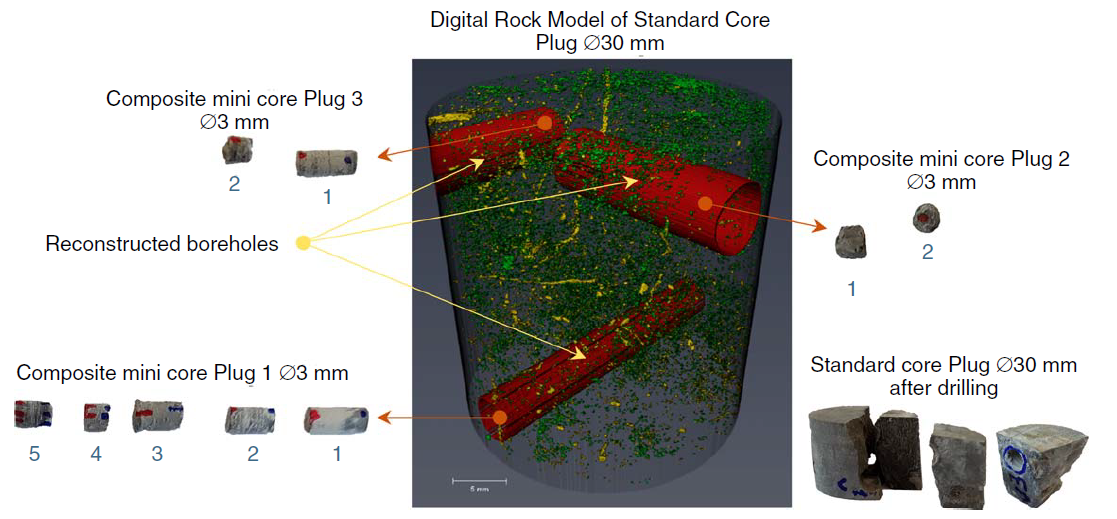
The task of reliable characterization of complex reservoirs is tightly coupled to studying their microstructure at a variety of scales, which requires a departure from traditional petrophysical approaches and delving into the world of nanoscale. A promising method of representatively retaining a large volume of a rock sample while achieving nanoscale resolution is based on multiscale digital rock technology. The smallest scale of this approach is often realized in the form of working with sev... Read more
Andrey Kazak - Svyatoslav Chugunov - Anatolii Chashkov
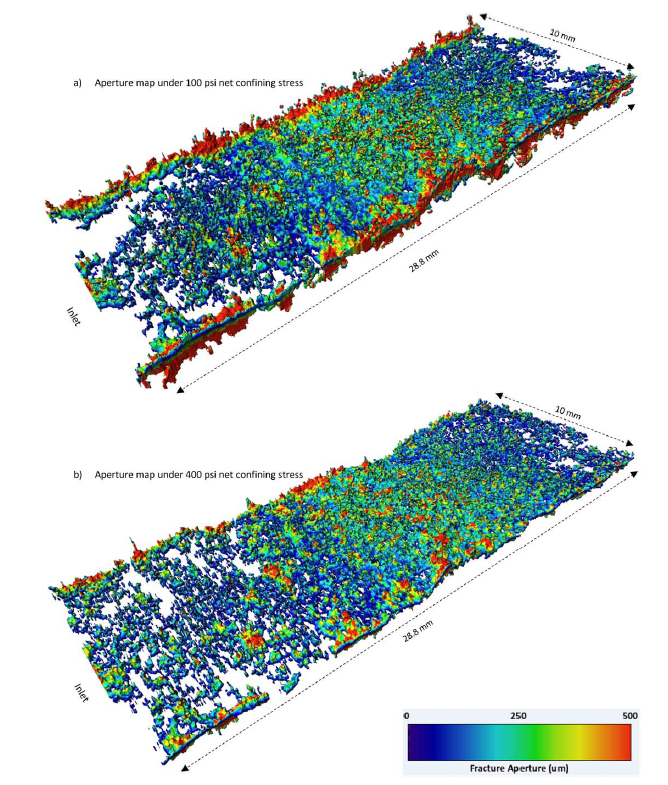
Pore‐Scale Experimental Investigation of Two‐Phase Flow Through Fractured Porous Media
Understanding transport mechanisms that govern two-phase flow in fractured porous media has direct implications for natural and industrial processes such as extraction of hydrocarbons from fractured reservoirs, geologic sequestration of CO2, or fluid flow through aquifers.
We present the results of a systematic pore‐scale experimental investigation of two‐phase oil/brine flow through a miniature water‐wet, fractured sandstone core sample. X‐ray microtomography is employed to ge... Read more
M. Arshadi, M. Khishvand, A. Aghaei, M. Piri, G. A. Al‐Muntasheri
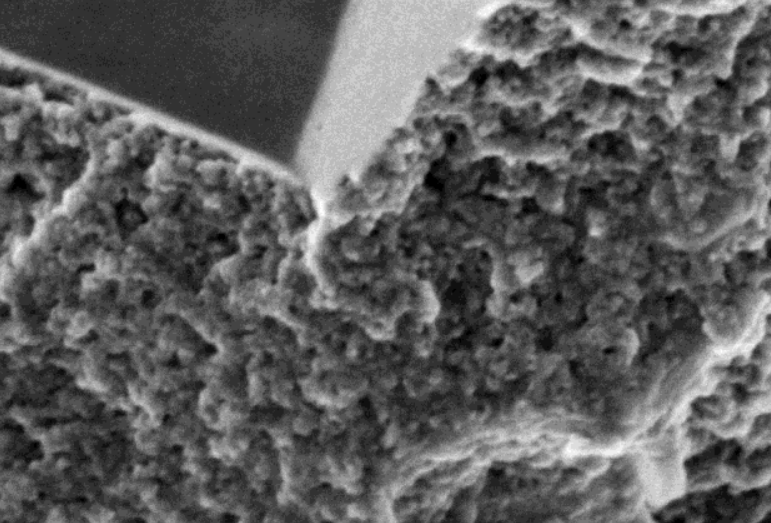
Optimization of production from shale reservoirs requires understanding of rock properties over a range of scales.
Multiple imaging techniques can be combined to determine the nature, connectivity, and wettability of nano-scale pore systems as well as the underlying mineralogy and organic textures that control reservoir behavior and the propensity of the matrix to fail and to contain expulsion cracks. The current study demonstrates new capabilities in integrated multiscale and time-res... Read more
Andrew Fogden, Alession Arena, Christopher Zhang, Ryan T. Armstrong
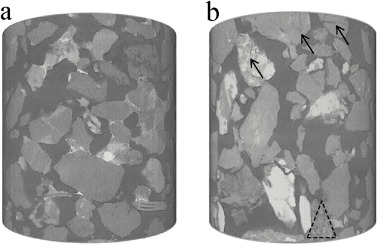
This study investigated the influence of compaction on the variation mechanism of petrophysical properties and the relative permeability of unconsolidated sandstone.
Firstly, triaxial mechanical experiments, CT scans, and mercury injection experiments were performed to analyze the microstructural characteristics and the macroscopic mechanism of changes in the petrophysical characteristics under different pressure. Secondly, a modified permeability test approach was adopted on reservoir... Read more
Yu Xiong, Hongguang Xu, Yongqing Wang, Wensheng Zhou, Ling Wang, Kai Feng
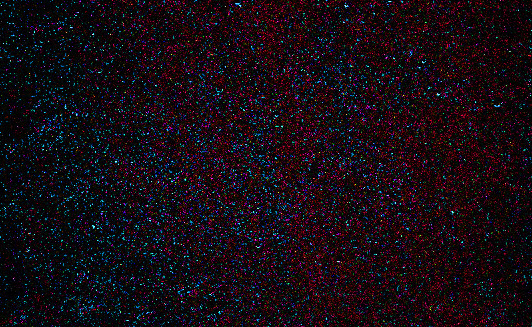
Major advance in well bore analysis with CT inspection
Premier, COREX has been providing core analytical services to the oil and gas industry for more than 30 years. Within the last decade it has augmented its rock core investigations by sending samples for analysis approximately every week to Nikon Metrology’s centre of excellence for micro-focus computed tomography (micro-CT) in Tring, Hertfordshire.
Drilling for oil or gas is an expensive business, whether offshore or on land, so it is essential for E&P (exploration and producti... Read more
Nikon
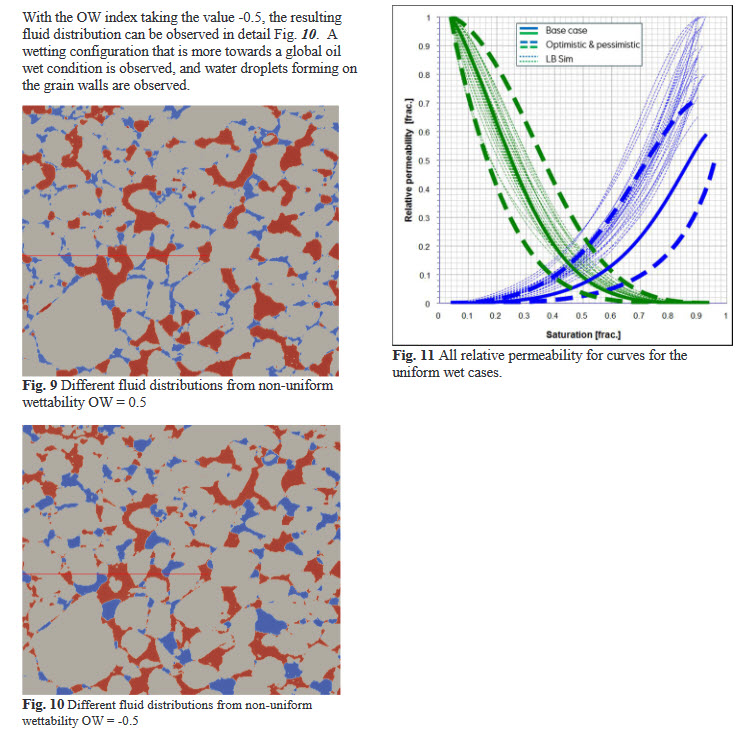
Relative permeability and capillary pressure are key properties within special core analysis and provide crucial information for full field simulation models. These properties are traditionally obtained by multi-phase flow experiments, however pore scale modelling has during the last decade shown to add significant information as well as being less time-consuming to obtain. Pore scale modelling has been performed by using the lattice-Boltzmann method directly on the digital rock models obtain... Read more
ThomasRamstad, Anders Kristoffersen, and EinarEbeltoft
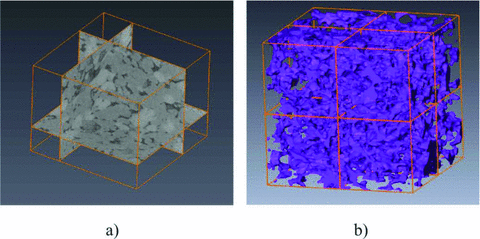
Computational elastic upscaling of sandstone on the basis of X‐ray micro‐tomographic images
Up‐scaling the elastic properties of digitized rock volumes as obtained from X‐ray computer tomography (CT) imaging via computer simulations has the potential to assist and complement laboratory measurements.
This computational up‐scaling approach remains a challenging task as the overall elastic properties are not only dependent on the elastic properties of individual grains but also on the hardly resolvable pore spaces between adjacent grains such as micro‐cracks. We develop ... Read more
Valeriya Shulakova, Marina Pervukhina, Tobias M. Müller, Maxim Lebedev, Sherry Mayo, Susanne Schmid, Pavel Golodoniuc, Osni Bastos De Paula, Michael B. Clennell, Boris Gurevich
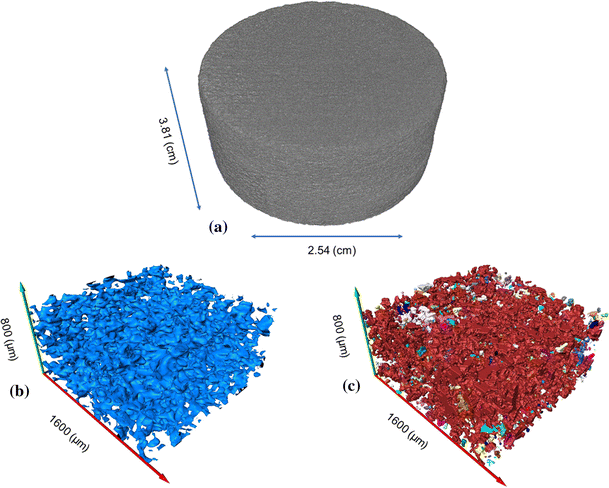
Pore characterization of 3D-printed gypsum rocks: a comprehensive approach
With advancements in additive manufacturing, now 3D-printed core plugs can be duplicated in order to replace natural rock samples. This can help us to control their parameters to be used in different types of experiments for model verifications.
However, prior to such substitutions, we should ensure they can represent natural rock samples through characterizing their physical properties. In this paper, synthetic samples made up of gypsum powder are 3D-printed and then characterized for... Read more
Lingyun Kong, Mehdi Ostadhassan, Chunxiao Li, Naser Tamimi
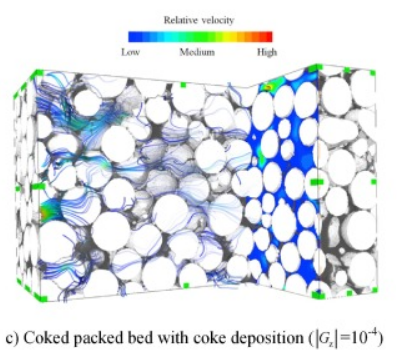
Coke deposition during crude oil in-situ combustion (ISC) is an important phenomenon that significantly impacts the pore topology and permeability.
In this study, X-ray computed microtomography and a specific image processing procedure were used to reconstruct the micro-tomographic images of packed beds with coke deposition. From the reconstructed images, the microstructural parameters related to the transport were analyzed, such as the effective porosity, the constrictivity and the ge... Read more
Qianghui Xu, Wei Long, Hang Jiang, Bin Ma, Cheng Zan, Desheng Ma, Lin Shi
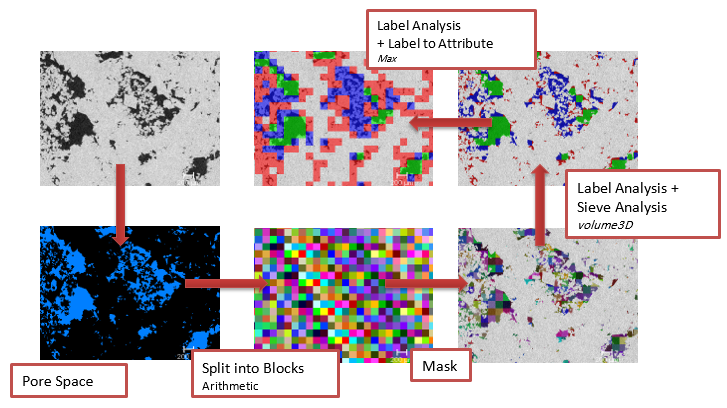
Simple Rock Characterization in PerGeos v1.7
A key benefit to obtaining digital imagery data is the ability to use all parts of the imaged sample for characterization purposes-not just what you have time to explore manually. This is especially the case with large datasets that are created during acquisition of 2D mosaic images or Whole Core CT imagery.
In these cases, a representative area or volume of material has been obtained. The next step will be to extract features, like porosity, for analysis.
But, what else can we ... Read more
Gwenole Tallec - Thermo Fisher Scientific
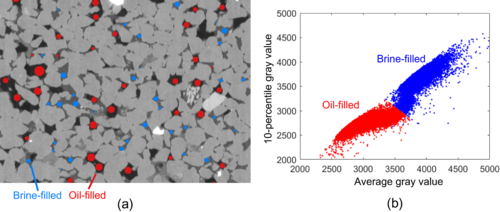
Validation of model predictions of pore-scale fluid distributions during two-phase flow
Pore-scale two-phase flow modeling is an important technology to study a rock’s relative permeability behavior. To investigate if these models are predictive, the calculated pore-scale fluid distributions which determine the relative permeability need to be validated. In this work, we introduce a methodology to quantitatively compare models to experimental fluid distributions in flow experiments visualized with microcomputed tomography.
First, we analyzed five repeated drainage-i... Read more
Tom Bultreys, Qingyang Lin, Ying Gao, Ali Q. Raeini, Ahmed AlRatrout, Branko Bijeljic, and Martin J. Blunt
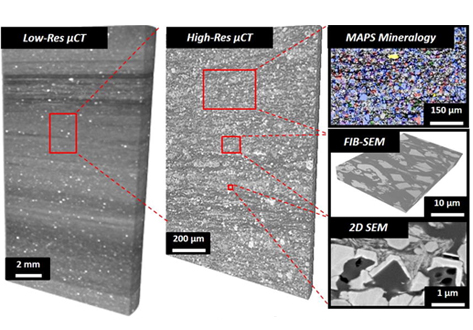
The complexity of unconventional rock systems is expressed both in the compositional variance of the microstructure and the extensive heterogeneity of the pore space. Visualizing and quantifying the microstructure of oil shale before and after pyrolysis permits a more accurate determination of petrophysical properties which are important in modeling hydrocarbon production potential. We characterize the microstructural heterogeneity of oil shale using X-ray micro-tomography (µCT), automated u... Read more
Imperial College London, Tarik Saif, Qingyang Lin, Alan R.Butcher, Branko Bijeljic, Martin J.Blunt